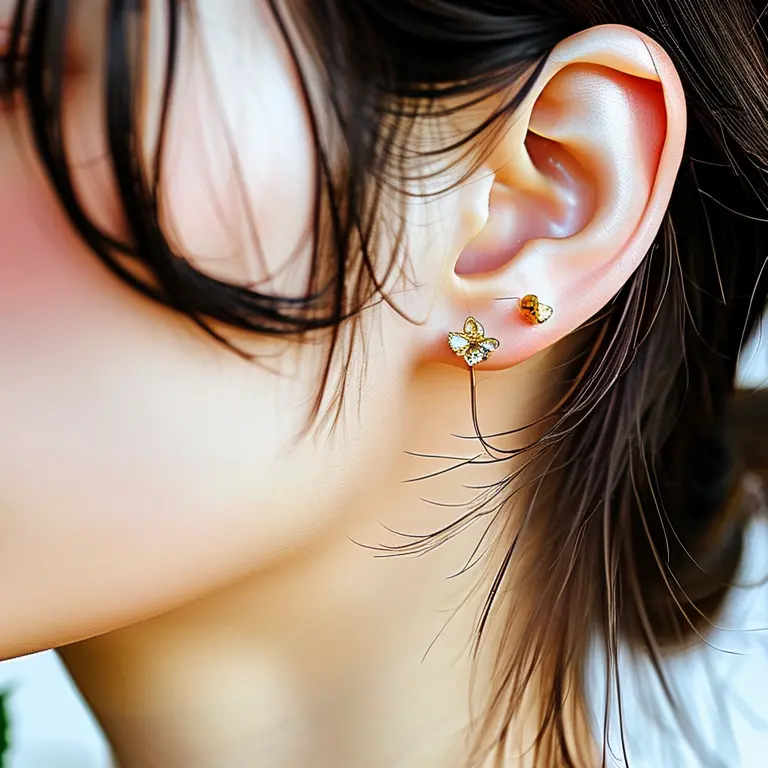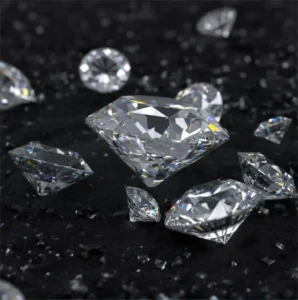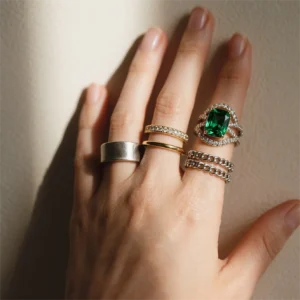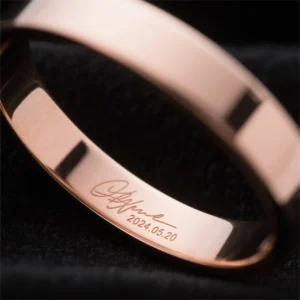Jewelry is a timeless favorite, but not all pieces are created equal when it comes to durability and water resistance. This guide reveals the truth about waterproof jewelry to help you understand the science behind these materials and how they perform in different environments, from swimming and fitness activities to daily wear. We’ll also share essential care tips, including corrosion resistance and chlorine protection, and help you navigate the trade-offs between different material types to keep your jewelry in top shape.
Benefits of Waterproof Jewelry
Durability
It effortlessly resists tarnish, corrosion, and rust, even when exposed to water or humidity. This makes it the perfect companion for outdoor adventures, rigorous workouts, or relaxing vacations.
Easy Care
Unlike traditional jewelry, waterproof jewelry requires minimal cleaning and maintenance to save you time and effort. With exceptional water- and moisture-resistant properties, you can confidently wear them while showering, swimming, or handling daily chores. This resilience preserves their lustrous appearance and significantly reduces replacement needs caused by oxidation or wear.
Versatility
It’s perfect for every occasion, its ability to withstand water adds a layer of versatility, making them ideal for sports, outdoor adventures, and even daily wear. Whether you’re dressing up for a formal event or keeping it casual for everyday tasks, it seamlessly transitions to fit any setting. Plus, suitable for those with sensitive skin, it’s a practical choice for everyday wear and ensuring comfort and style without compromise.
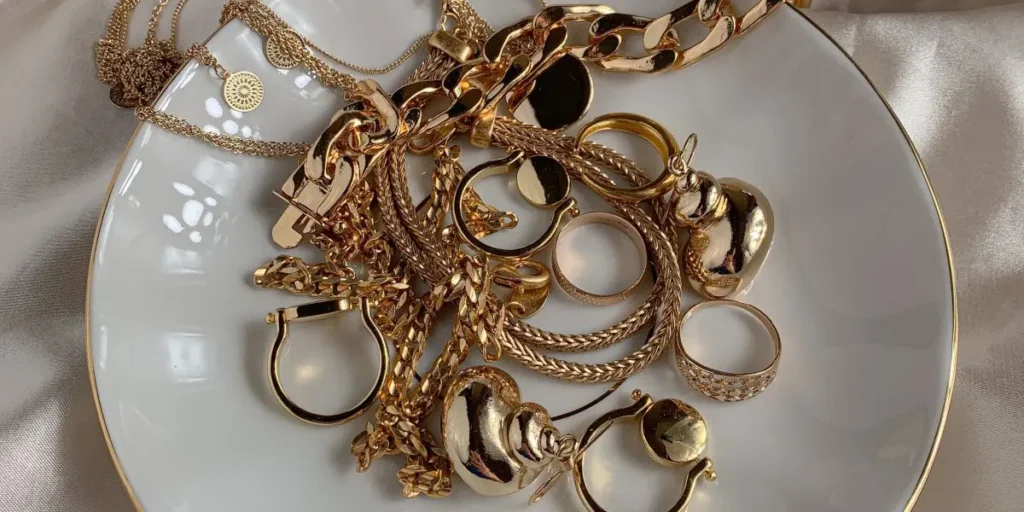
Jewelry Materials Waterproof Performance
Common waterproof jewelry materials include 999 pure silver, 925 sterling silver, gold filled, 14k gold, 18k gold, solid gold, etc. The waterproof performance of different jewelry materials varies widely, depending on their composition, structure, and treatment processes. Discover the diverse materials used in crafting waterproof jewelry, select the material that best fits your style and budget for stylish, functional jewelry.
Is 999 Sterling Silver Waterproof?
Pure silver, also referred to as 999 silver, boasts a purity level of 99.9%, containing virtually no impurities. In terms of water resistance, pure silver is generally resilient to water damage. However, due to its softness and susceptibility to oxidation, prolonged exposure to water can expedite tarnishing. Pure silver jewelry intended for daily wear should undergo anti-tarnish treatment to maintain its shine, strict avoidance of chemical exposure is imperative.
Is 925 Sterling Silver Waterproof?
925 Sterling Silver, like 999 pure silver, is generally resilient to water damage. While the addition of metals like copper enhances its hardness, prolonged water exposure can still lead to oxidation and discoloration, particularly accelerated by the presence of copper. To combat this, our jewelry undergoes an electronic coating process that safeguards against water-induced tarnishing, rendering it perfect for everyday use.
Is 14K Gold Waterproof?
14K gold exhibits good water resistance, containing 58.3% pure gold. While other metals in its alloy, like copper and zinc, may slightly affect its corrosion resistance, it retains its original appearance even after prolonged water exposure. No special waterproof care is needed for everyday wear, but it should be avoided from contact with strong acids and bases.
Is 18K Gold Waterproof?
18K Gold, comprising 75% pure gold, boasts enhanced corrosion resistance due to its higher purity. It maintains its color even after prolonged water exposure, making it suitable for daily long-term wear. However, the presence of chlorine or other substances in pool water or seawater may have an effect on its waterproof performance, and frequent contact should be avoided.
Is Gold Filled Waterproof?
Crafted with a gold-filled exterior containing at least 5% gold by weight, offers well water resistance. However, prolonged immersion may cause minor wear at the plating edges. To keep it pristine, we recommend removing it during swimming and bathing, and wiping away sweat promptly to prevent waterborne impurities from tarnishing its luster.
Precious Metals with Waterproof Coatings
Beyond traditional options, consider precious metals like platinum, silicone, and palladium infused with advanced waterproof coating technologies. These pieces are fortified with e-coating protective layers, creating an impervious shield against moisture. By blending noble metal bases with innovative coatings, these designs epitomize both exquisite artistry and robust water resistance.
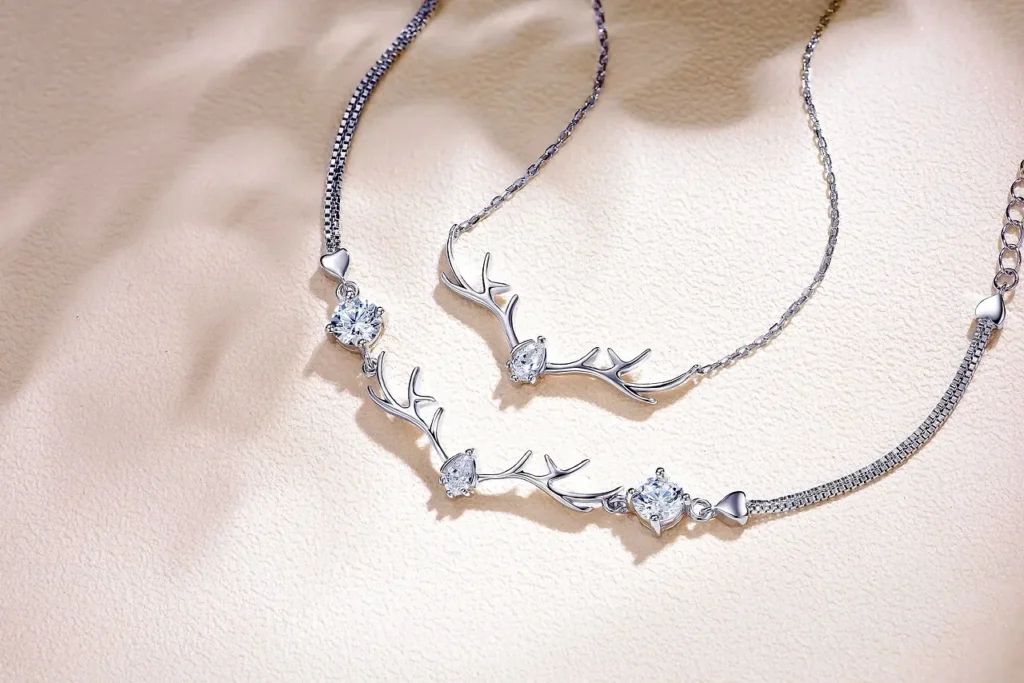
Is Waterproof Equivalent to Sweatproof?
Not exactly. While waterproof implies resistance to water penetration, sweatproof denotes specific protection against the effects of body chemistry. Sweat comprises acidic compounds (such as lactic acid and urea) and salts, which can gradually corrode metal alloys. These thermoregulatory byproducts actively weaken the molecular bonds in materials like copper, brass, and even lower-karat gold.
Protective Jewelry for Every Lifestyle
Waterproof jewelry combines practicality with enduring elegance, designed to thrive in active lifestyles. Opt for materials like sterling silver, K gold and gold filled for superior water resistance, or select other material options with reinforced coatings for budget-friendly durability. While waterproofing protects against water exposure, remember that sweat, chlorine, and chemicals require additional safeguards—prioritize sweatproof designs.

